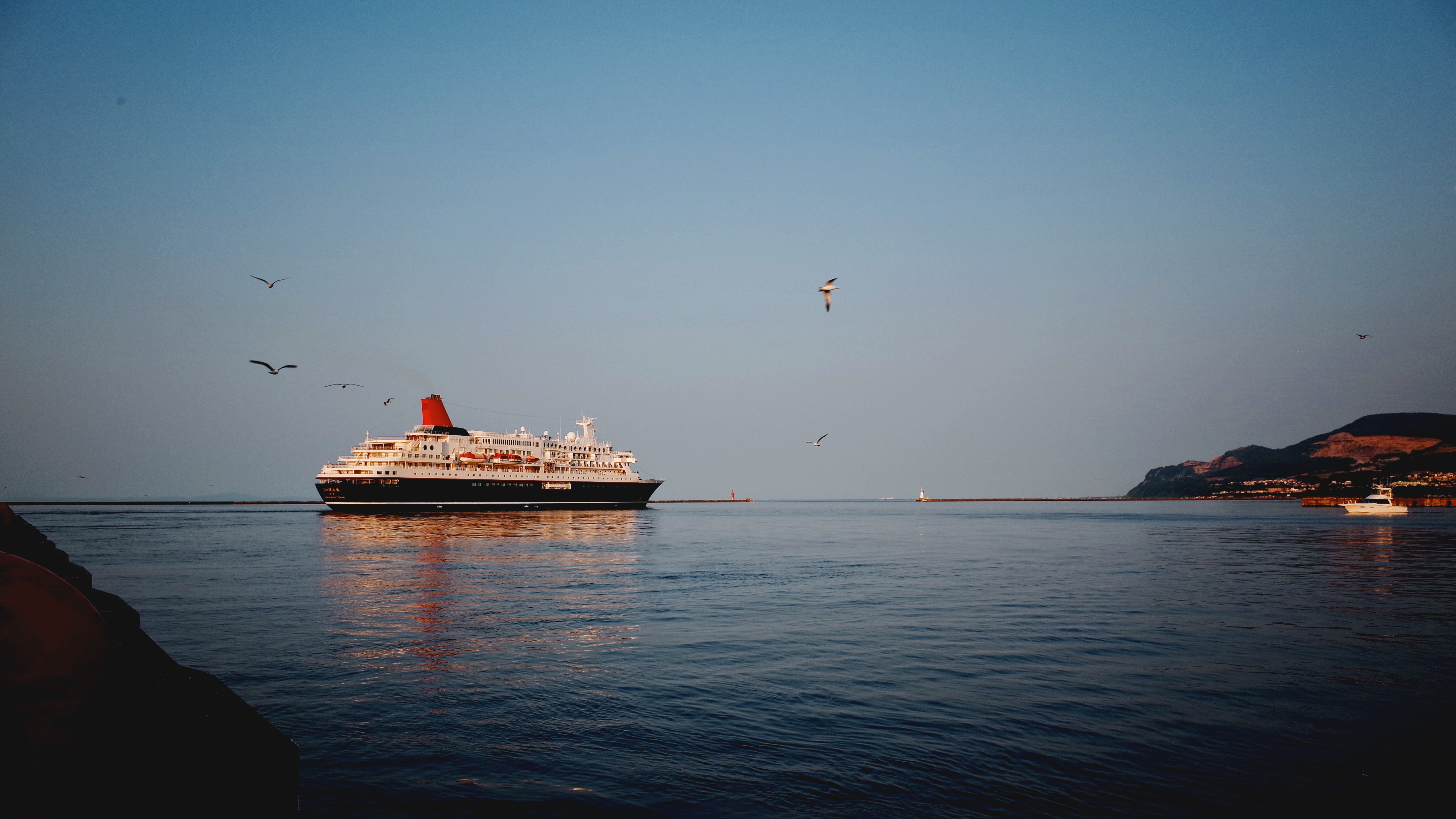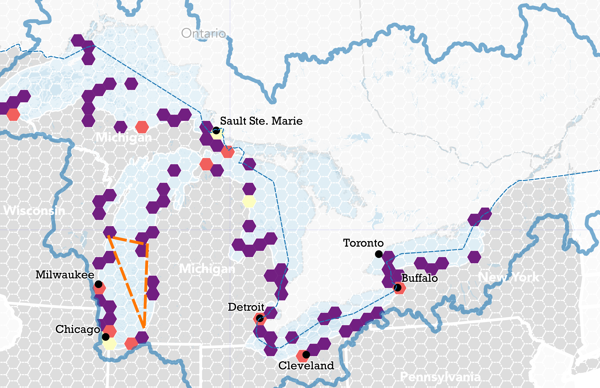
Cruising season is quickly approaching. For the Great Lakes, the oncoming season promises well-received itineraries and new ships for passengers to experience.
Yet as exciting as vacationing on the Great Lakes and St. Lawrence Seaway sounds, passengers should be aware of the potential risks and what to do in the event of any unplanned incident.
We sat down with U.S. maritime attorney Gary Baun, a member of the Maritime Law Association of the U.S. and the American Association for Justice, to discuss what legal protections are in place for passengers when it comes to injury or property claims and what to pay attention to when facing a situation that could involve ship facilities, crew or other related liability.
This is an edited transcript of the conversation.
Great Lakes Now: How were passenger rights established historically? What are they based on?
Gary Baun: There are no passenger rights.
GLN: There are none?
GB: Not really. There is a case, [Kermarec v. Compagnie Generale Transatlantique] a common carrier owes to people on board the vessel not inimical to the owner of the vessel’s interest the duty of due care. That’s it.
What does that mean? It just means that they have to take reasonable care to look out for the safety and wellbeing of the passengers.
GLN: What kind of jurisdiction do cases involving common carriers, or cruise ships in this case, fall under?
GB: A passenger on a vessel, their rights would be principally defined under federal law. That is because vessels typically do not stay in the jurisdiction of one locale, they’ll pass through the territorial waters of many locales.
GLN: And if a cruise ship stays entirely in Michigan waters, would it still be federal jurisdiction then?
GB: The land under the water, the federal government platted it via deed to the states. So say you’re on Lake St. Clair. If you’re on one side you’re in the state of Michigan, if you’re on the other side you’re in Canada, but the waterways are federally navigable which means that it’s not like a Wayne County sheriff could stop one of those cruise ships.
That’s why there’s a joint jurisdiction. If you were to go out on Lake St. Clair you’d see Coast Guard, rescue vessels, interdiction vessels, and you’d see Macomb County and Wayne County sheriff’s vessels but when push comes to shove it’s the federal government that has the final say.
GLN: The lack of protections for passengers seems ridiculous, don’t sailors have rights at the very least?
GB: Yeah, under the Jones Act in the federal admiralty law. But there’s no Jones Act for passengers.
Section 33 of the Jones Act, or Merchant Marine Act of 1920, grants sailors suffering personal injury while employed on a ship the right to file an action for damages against their employer with a right of trial by jury. Since passengers are not employees of a ship, the ship’s owner, or its holding company, the Jones Act is not applicable to them.
GLN: What should passengers ask of cruise lines before boarding?
GB: They generally don’t give you the ticket of passage before you board… I would demand that right up front. I mean, you’d want to see what’s in there and it’ll tell you ‘If you have an injury claim or a property claim, this is what you have to do.’ There are venue clauses and they’ll tell you maybe you have to sue here or sue there if you want to file a lawsuit.
GLN: What are venue clauses?
GB: All the major cruise lines – Carnival, Norwegian Cruise Lines, [Royal] Caribbean – they all have a forum selection clause, or a venue clause, and generally they all say you have to sue in the federal court in Ft. Lauderdale, Florida.
GLN: But some of these ships are registered, or flagged to use sailor speak, in different countries. Would they still be suing in Ft. Lauderdale?
GB: It’s the law of the flag. I had a person approach me to represent them, and the company was based in Switzerland. I had to refer them to a Swiss attorney. Now what ever happened after that, I don’t know. I can guarantee you their rights were substantially compromised.
People travel abroad all the time. When you’re in another country, you’re subject to their laws. If you’re on a ship and it’s flagged in a different country, then it’s like a little part of that nation. So let’s say it’s a Greek-flagged vessel, you might as well be in Greece.
GLN: Most of the cruise ships on the Great Lakes only operate within the United States and some go to Canada as well, so wouldn’t these all be under federal American or Canadian jurisdiction?
GB: A ship, to be able to conduct a voyage from an American port to an American port, has to be flagged in the United States, has to be built in the United States, has to be crewed by US sailors. That’s part of the Jones Act.
GLN: But a ship could get around that by say going from an American port to a Canadian one and just keep going back and forth?
GB: Yeah, that’s one way of doing it.
Ship owners can register their ship with what are known as Open Registries or with Flags of Convenience, that don’t necessarily correspond to which country technically owns the ship. Numerous Caribbean and Central American nations offer greater leeway in terms of legal liability for ship owners, which is why the tiny country of Panama has the largest passenger fleet in the world. If you would like to know where the cruise ship you’re boarding is flagged, you can consult this website.
GB: It’s also important to note that any injury that happens on a cruise ship has a one-year statute of limitations. So say you have a medical issue on board, you only have one year to file suit. It’s the only industry that has such an advantageous statute.
If you should be so unfortunate to experience an injury, loss, incident or issue while aboard a cruise vessel, it is extremely important to seek the advice of an experienced maritime attorney immediately.
1 Comment
-
Your blog is very valuable which you have shared here about Choosing a Maritime Attorney – Is Experience Really Important? I appreciate your efforts which you have put into this article and also it is a gainful article for us. Thank you for sharing this article here.





